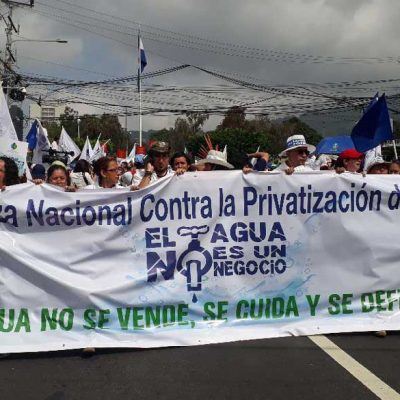
Fighting for a Just Water System in El Salvador
The future of water may be about to change in El Salvador, with the new conservative National Congress and environmental commission considering a bill that would essentially privatize water access.
Read More





